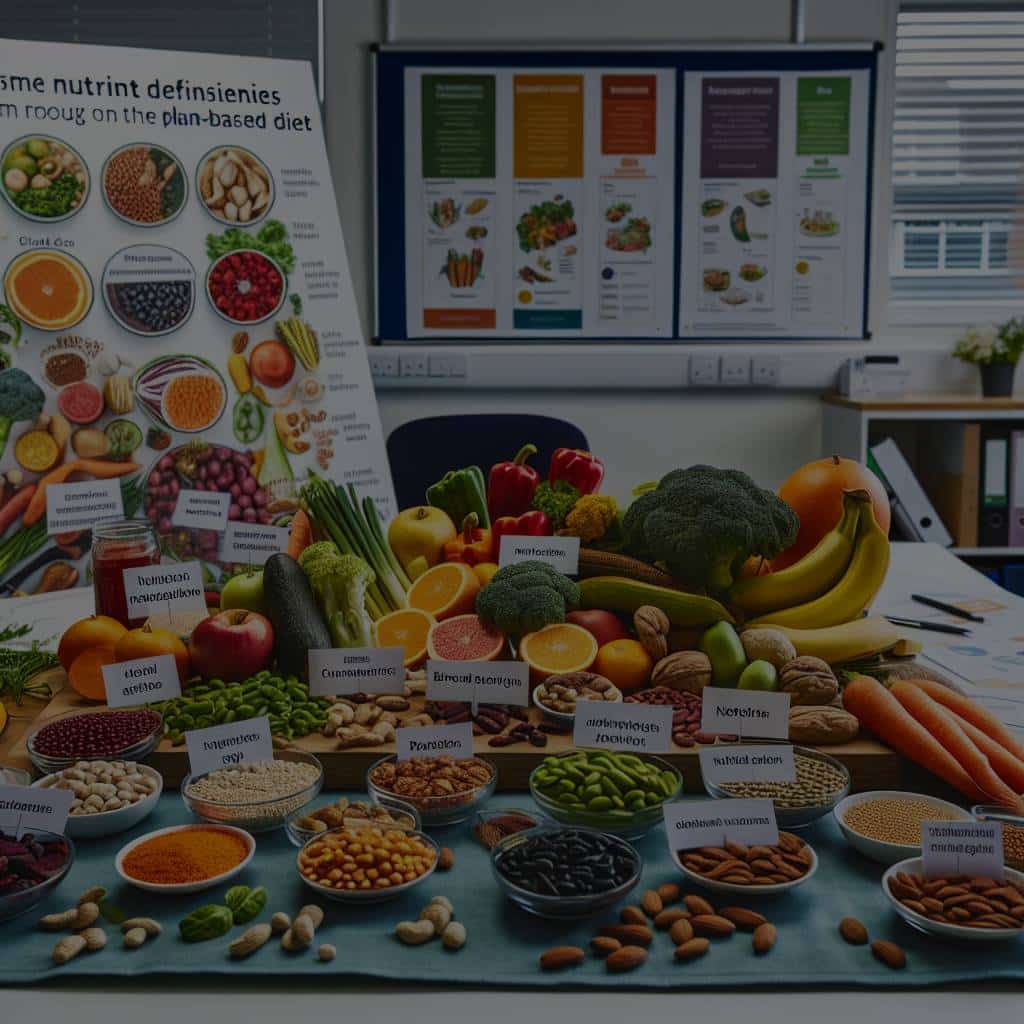How to Address Nutrient Deficiencies in Plant-Based Diets?

Within the realm of health and wellness, a significant influx of people globally are making conscious shifts towards plant-based diets. Rooted in the desire to maintain optimal health, support animal welfare, and reduce environmental impact, these diets focus primarily on fruits, vegetables, grains, legumes, nuts, and seeds. However, some may express concerns about potential nutrient deficiencies associated with these diets.
Through this article, we aim to provide comprehensive strategies to ensure a well-rounded nutrient intake for individuals adhering to plant-based diets, including vegans and vegetarians. We draw insights from exhaustive studies and resources available on scholar google and crossref, two esteemed academic research platforms.
Avez-vous vu cela : What Techniques Are Most Effective for Reducing Anxiety Before Surgery?
Addressing Vitamin B12 Deficiency
Vitamin B12, primarily found in animal sources, is commonly deficient in plant-based diets. This vitamin is vital for nerve function and the production of red blood cells. A deficiency can lead to anemia and neurological issues.
One way to address B12 deficiency is through fortified foods. Many breakfast cereals, plant-based milks, and yeast extracts are fortified with B12. Supplements are another reliable source, especially for strict vegans.
A découvrir également : What Is the Role of High-Intensity Interval Training in Cardiac Rehabilitation?
Regular monitoring of B12 status is recommended to ensure adequate intake and assimilation. It is also worth noting that B12 absorption can decrease with age, so older adults following a plant-based diet may consider higher dosage supplements.
Ensuring Adequate Iron Intake
Iron is a crucial mineral responsible for oxygen transportation in the blood. While plant-based diets can provide sufficient iron, the form of iron in plant foods, non-heme, is less readily absorbed by the body compared to heme iron found in meat.
Boosting iron absorption from plant foods can be achieved by combining them with foods rich in vitamin C. Examples include having a glass of orange juice with your morning oatmeal or adding bell peppers to a lentil stew.
Certain foods and beverages such as coffee, tea, and high-calcium foods can inhibit iron absorption. Therefore, it is advisable to consume these separately from iron-rich meals.
Incorporating Vitamin D Sources
Vitamin D is another nutrient of concern for plant-based dieters. It is necessary for bone health as it aids calcium absorption. Deficiency can lead to osteoporosis and other bone disorders.
The body can produce vitamin D through exposure to sunlight. However, during the colder months or for individuals living in less sunlit regions, it may be challenging to get sufficient vitamin D from sunlight alone.
Fortified plant-based milks, mushrooms exposed to UV light, and supplements can provide the necessary vitamin D. Vitamin D3 from lichen is suitable for vegans, while D2 is acceptable for both vegans and vegetarians.
Monitoring Calcium Intake
Calcium is quintessential for bone health and muscle function. While dairy products are renowned as prime calcium sources, they are not options for plant-based dieters.
Fortunately, several plant foods are abundant in calcium. These include kale, collard greens, broccoli, okra, figs, and fortified plant-based milks. Pairing these foods with vitamin D sources can enhance calcium absorption, further securing bone health.
Balancing Omega-3 Fatty Acids
Omega-3 fatty acids play a crucial role in heart and brain health. Fish and seafood are the primary sources of EPA and DHA, the most beneficial forms of omega-3.
For plant-based dieters, flaxseeds, chia seeds, hemp seeds, and walnuts are excellent sources of ALA, a type of omega-3 that the body can convert into EPA and DHA. However, the conversion rate is relatively low, so it is often recommended to supplement with algae-based omega-3 to ensure adequate levels.
In conclusion, following a plant-based diet does not have to equate to nutrient deficiencies. With appropriate planning, knowledge, and possibly supplementation, it is possible to receive all necessary nutrients while enjoying the benefits of a diet centered around plant foods.
Implementing Complete Proteins in Plant-based Diets
Protein is a vital nutrient that acts as the body’s primary building blocks, structuring, repairing, and renewing tissues. Commonly associated with meat, eggs, and dairy, it is a common concern for those transitioning to a plant-based diet.
Contrary to popular belief, all nine essential amino acids, the building blocks of protein, can be obtained from plant foods. The key is to consume a variety of plant proteins to ensure a balanced amino acid profile.
For instance, combining legumes such as lentils, chickpeas, or black beans with grains like quinoa, brown rice, or oats can provide a complete protein profile resembling that of meat.
Additionally, several plant foods are considered complete proteins on their own, including quinoa, buckwheat, hemp seeds, chia seeds, and soy products like tofu and tempeh.
For vegans and vegetarians, tracking protein intake through apps or consulting a dietitian can provide reassurance of achieving adequate protein intake without relying on animal-derived sources.
Supplementing with Iodine and Zinc
Iodine and zinc are two other micronutrients that are often overlooked but can be challenging to obtain in sufficient amounts from a plant-based diet.
Iodine is necessary for thyroid function and metabolism regulation. Its primary food sources include dairy, seafood, and iodized salt. For those adhering to a plant-based diet, seaweed is an excellent iodine source, particularly kombu kelp and wakame.
Zinc, on the other hand, plays a crucial role in immune function, protein synthesis, and cell growth. It is predominantly found in animal foods, but can also be obtained from legumes, whole grains, nuts, and seeds for individuals on a plant-based diet.
Soaking, sprouting, and fermenting these plant foods can enhance zinc absorption by reducing phytic acid, which can inhibit mineral absorption.
Conclusion
Transitioning to a plant-based diet does not mean compromising on essential nutrients. It demands mindful planning, diversification of food sources, and adequate knowledge about plant-based nutrient sources.
Using esteemed academic research platforms such as google scholar and crossref, individuals can access the latest research and strategies to address potential nutrient deficiencies.
Moreover, regular health check-ups and monitoring of nutrient levels can ensure that the diet is nutritionally balanced and wholesome. In certain cases, supplementation might be necessary and should be done under professional guidance to avoid potential health risks.
In essence, with the right resources and guidance, adhering to a plant-based diet can be a fulfilling, sustainable, and nutritious approach to eating, benefiting not just individual health, but also animal welfare and the environment.
